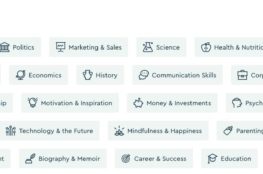In the fast-paced, competitive landscape of the modern workplace, technical skills and raw intelligence often take center stage. However, there’s an often-overlooked quality that can significantly elevate a man’s career: emotional intelligence. Emotional intelligence, or EQ, is the ability to recognize, understand, and manage our own emotions while also recognizing, understanding, and influencing the emotions of others. It’s a nuanced, complex skill set that distinguishes exceptional leaders and high performers from the rest.
Understanding Emotional Intelligence
Emotional intelligence encompasses several key components: self-awareness, self-regulation, motivation, empathy, and social skills. Daniel Goleman, a pioneer in popularizing the concept of EQ, defines it in his seminal book, Emotional Intelligence: Why It Can Matter More Than IQ, as “the ability to identify and manage your own emotions and the emotions of others.” Goleman’s research suggests that EQ can be more crucial than IQ in determining professional success.
Why does EQ matter so much? Consider this: a software engineer might have impeccable coding skills, but without the ability to communicate effectively, manage stress, or work collaboratively, his career progression might stall. On the other hand, an engineer with a high EQ can navigate workplace dynamics more adeptly, leading to better team performance, higher job satisfaction, and enhanced leadership potential.
The Workplace Value of Emotional Intelligence
- Enhanced Communication: At its core, emotional intelligence is about understanding and being understood. This leads to clearer, more effective communication, reducing misunderstandings and fostering a more cohesive work environment.
- Improved Conflict Resolution: Workplace conflicts are inevitable, but those with high EQ handle them with grace. They can see the situation from multiple perspectives, address the underlying emotions, and find mutually beneficial solutions.
- Increased Empathy: Empathy is a cornerstone of EQ and is essential for building strong, trusting relationships. Empathetic leaders are better at understanding their team’s needs and concerns, leading to higher morale and productivity.
- Better Stress Management: Emotional intelligence helps individuals manage their own stress and the stress of others. This is particularly valuable in high-pressure environments where maintaining composure is critical.
- Leadership and Influence: Leaders with high EQ inspire and motivate their teams. They are adept at managing emotions, fostering a positive work culture, and driving collective success.
As Travis Bradberry and Jean Greaves explain in Emotional Intelligence 2.0, individuals with high EQ are “the ones who will emerge as leaders, innovators, and the people to whom others look when times get tough.”
Strategies to Improve Emotional Intelligence
Improving your EQ is a journey that requires self-reflection, practice, and commitment. Here are some practical strategies to enhance your emotional intelligence:
- Self-Reflection: Take time to reflect on your emotions and reactions. Understand what triggers your emotions and how you typically respond. Journaling can be a helpful tool for this process.
- Seek Feedback: Ask for feedback from colleagues and mentors about your emotional responses and interpersonal skills. Constructive criticism is invaluable for growth.
- Practice Empathy: Make a conscious effort to understand the emotions and perspectives of others. This can be as simple as actively listening during conversations and validating others’ feelings.
- Mindfulness and Stress Management: Engage in mindfulness practices such as meditation or deep-breathing exercises to manage stress and stay grounded.
- Continuous Learning: Read books and attend workshops on emotional intelligence. The EQ Edge: Emotional Intelligence and Your Success by Steven Stein and Howard Book offers a wealth of insights and practical advice for developing EQ.
- Develop Social Skills: Work on your communication and relationship-building skills. This includes being open to others’ ideas, resolving conflicts calmly, and building a network of supportive colleagues.
- Set Personal Goals: Identify specific areas for improvement in your emotional intelligence and set achievable goals. Track your progress and celebrate your successes.
Emotional intelligence is a powerful, transformative skill that can elevate your career and personal life. By understanding and improving your EQ, you can become a more effective communicator, a compassionate leader, and a resilient professional. So, embark on this journey of self-improvement with enthusiasm and humor, and remember that the most successful individuals are those who combine intelligence with emotional insight.
As you navigate the complexities of the modern workplace, let emotional intelligence be your guiding star. Embrace it, cultivate it, and watch as it opens doors to new opportunities and deeper connections.




